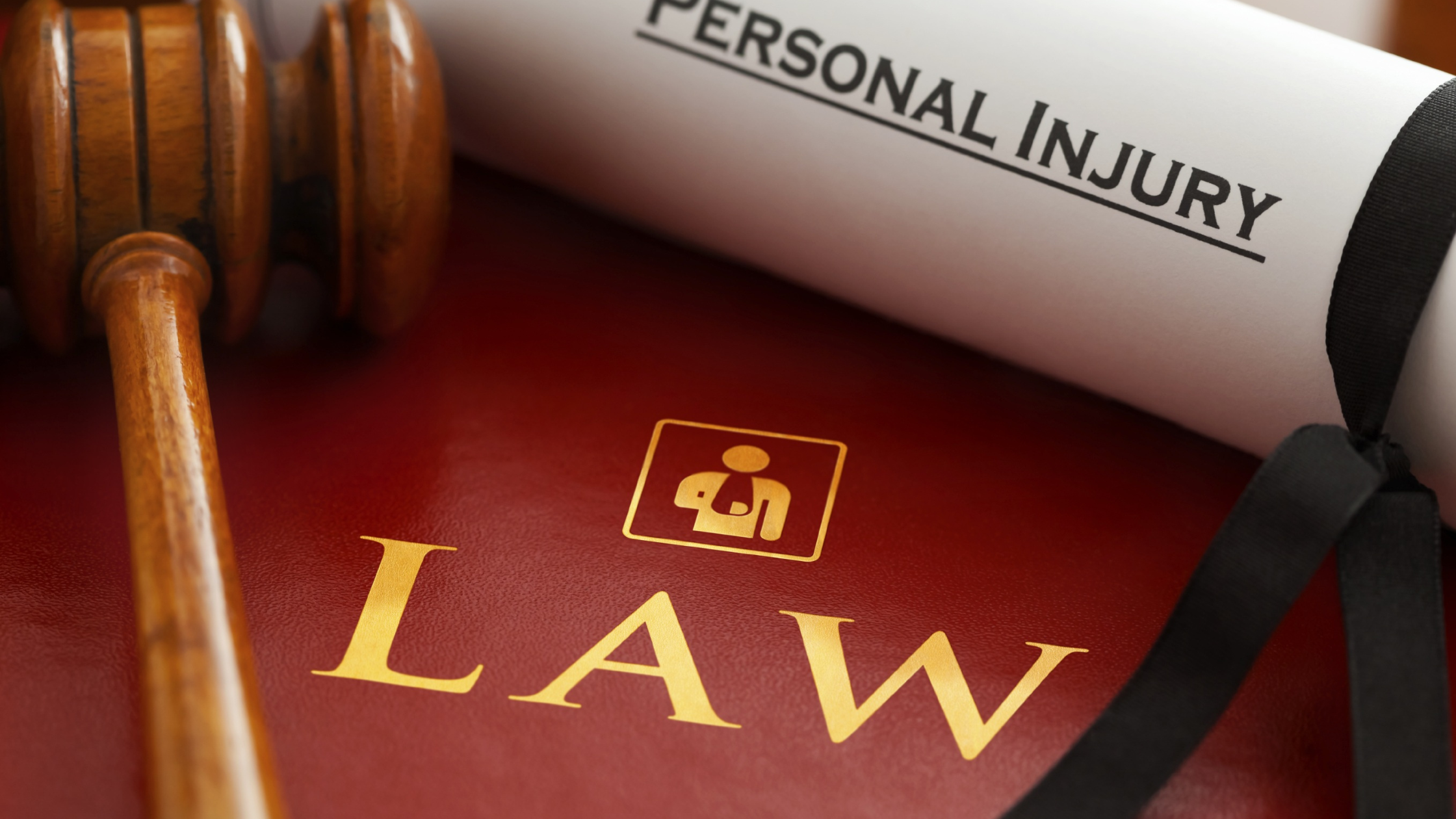
From Accident to Compensation: A Step-by-Step Guide to Personal Injury Claims
Introduction
If you have been involved in an accident and suffered a personal injury, you may be entitled to compensation. Navigating the process of filing a personal injury claim can be overwhelming, but with the right guidance, you can successfully seek the compensation you deserve. In this comprehensive guide, we will walk you through each step of the personal injury claims process, providing valuable insights and practical tips along the way.
What is a Personal Injury Claim?
A personal injury claim is a legal case filed by an individual who has suffered physical or emotional harm due to the negligence or intentional actions of another party. The purpose of a personal injury claim is to seek financial compensation for medical expenses, loss of income, pain and suffering, and other damages resulting from the accident.
Understanding Negligence in Personal Injury Claims
In order to successfully pursue a personal injury claim, it is essential to establish that the other party was negligent. Negligence refers to the failure to exercise reasonable care, resulting in harm or injury to another person. To prove negligence, four elements must be established:
How Do Personal Injury Claims Work?
Personal injury claims typically involve several key stages that must be navigated in order to reach a successful outcome. Understanding how personal injury claims work can help you prepare for what lies ahead and ensure that you take appropriate action at each stage.
Stage 1: Initial Consultation and Evaluation
The first step in pursuing a personal injury claim is to consult with an experienced personal injury lawyer. During the initial consultation, the lawyer will evaluate the merits of your case and determine whether you have a valid claim. They will also discuss the potential compensation you may be entitled to.
Stage 2: Gathering Evidence
Once you have decided to proceed with your personal injury claim, the next step is to gather evidence to support your case. This may include medical records, accident reports, witness statements, photographs, and any other relevant documentation.
Stage 3: Negotiations and Settlement Discussions
After gathering evidence, your lawyer will enter into negotiations with the responsible party's insurance company or legal representatives. The goal of these negotiations is to reach a fair settlement that adequately compensates you for your injuries and losses.
Stage 4: Filing a Lawsuit (If Necessary)
If a fair settlement cannot be reached through negotiations, your lawyer may advise you to file a lawsuit. This involves initiating legal proceedings against the responsible party in court. The specific steps involved in filing a lawsuit will vary depending on the jurisdiction in which your case is being heard.
Stage 5: Discovery and Preparing for Trial
Once a lawsuit has been filed, both parties engage in a process called discovery. This involves exchanging information and evidence relevant to the case. Your lawyer will also prepare for trial by conducting depositions, interviewing witnesses, and developing a strong legal strategy.
Stage 6: Trial and Verdict
If your case proceeds to trial, it will be heard by a judge or jury who will determine whether the defendant should be held liable for your injuries and if so, how much compensation you are entitled to receive. The trial process can be lengthy and complex, but having an experienced personal injury lawyer by your side can greatly increase your chances of success.

How Long Does a Personal Injury Claim Take?
The duration of a personal injury claim can vary widely depending on various factors such as the complexity of the case, the severity of the injuries, and the willingness of the parties to negotiate. While some personal injury claims may be resolved within a few months, others can take several years to reach a resolution.
Factors That Can Impact the Timeline of a Personal Injury Claim
How to Claim Compensation for Personal Injury
Seeking compensation for a personal injury requires careful attention to detail and adherence to specific procedures. By following these steps, you can maximize your chances of successfully claiming compensation for your injuries:
Step 1: Seek Medical Attention
The first and most important step after an accident is to seek immediate medical attention. Not only is this essential for Personal Injury Claims Brisbane QLD your health and well-being, but it also establishes a record of your injuries that will be crucial when filing a personal injury claim.
Step 2: Document Everything
Keep detailed records of all medical treatments received, expenses incurred, and any other relevant information pertaining to your injuries and their impact on your life. This documentation will serve as evidence to support your claim.
Step 3: Consult with a Personal Injury Lawyer
Consulting with an experienced personal injury lawyer is crucial to ensure that your rights are protected and that you receive fair compensation for your injuries. They will guide you through the claims process, handle negotiations on your behalf, and represent you in court if necessary.
Step 4: File a Claim with the Responsible Party's Insurance Company
Your lawyer will assist you in preparing and filing a claim with the responsible party's insurance company. This claim will outline the details of the accident, your injuries, and the compensation you are seeking.

Step 5: Negotiate a Fair Settlement
Your lawyer will engage in negotiations with the insurance company to reach a fair settlement. They will advocate for your best interests and ensure that you receive the compensation you deserve.
Step 6: Consider Mediation or Alternative Dispute Resolution
If negotiations with the insurance company reach an impasse, your lawyer may suggest alternative dispute resolution methods such as mediation. These methods can help facilitate a compromise between both parties and avoid the need for a lengthy court battle.
Step 7: Prepare for Trial (If Necessary)
If a fair settlement cannot be reached through negotiations or alternative dispute resolution, your lawyer will prepare your case for trial. This involves gathering additional evidence, preparing witnesses, and developing a strong legal strategy.
Frequently Asked Questions
Q: What is the time limit for filing a personal injury claim? A: The time limit, or statute of limitations, for filing a personal injury claim varies by jurisdiction. It is important to consult with a personal injury lawyer as soon as possible to ensure that you do not miss any applicable deadlines.
Q: How much compensation can I expect to receive for my personal injury claim? A: The amount of compensation you may be entitled to depends on various factors such as the severity of your injuries, the impact on your life, and any financial losses incurred as a result of the accident. An experienced personal injury lawyer can provide an estimate based on similar cases and help you seek fair compensation.
Q: Will I have to go to court if I file a personal injury claim? A: While many personal injury claims are settled out of court through negotiations, some cases may proceed to trial if a fair settlement cannot be reached. Your lawyer will prepare your case for trial and represent you in court if necessary.
Q: Can I file a personal injury claim if the accident was partially my fault? A: In many jurisdictions, you may still be eligible to file a personal injury claim even if you were partially at fault for the accident. However, the amount of compensation you receive may be reduced based on your percentage of fault.
Q: What fees do personal injury lawyers charge? A: Personal injury lawyers typically work on a contingency fee basis, which means that they only get paid if they successfully recover compensation for you. Their fees are usually a percentage of the final settlement or court award.
Q: Can I change lawyers if I am not satisfied with my current representation? A: Yes, you have the right to change lawyers at any time during the claims process if you are not satisfied with their services. However, it is important to carefully consider the implications of changing lawyers and seek guidance from another experienced personal injury lawyer.
Conclusion
Navigating the personal injury claims process can be complex and challenging, but with the right guidance and support, you can effectively pursue Personal Injury Claims Brisbane the compensation you deserve. By following this step-by-step guide and working with an experienced personal injury lawyer, you can increase your chances of achieving a successful outcome and moving forward from your accident towards rightful compensation. Remember to consult with a legal professional to ensure that your rights are protected throughout the entire process.
So, don't let your accident define your future. Take action today and start on the path towards securing the compensation that is rightfully yours.